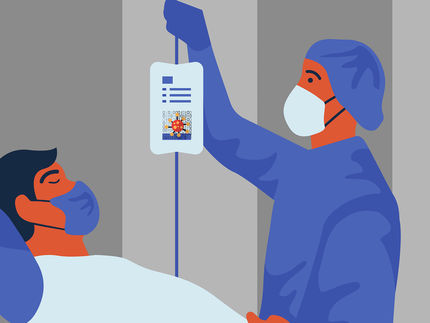CureVac Announces Positive Data on Joint COVID-19 and Flu mRNA Vaccine Development Programs
CureVac N.V. announced positive preliminary data from ongoing Phase 1 clinical programs in Covid-19 and seasonal flu, assessing both modified and unmodified mRNA technology. The tested vaccine candidates are being developed in collaboration with GSK. The preliminary results generated by this broad technology approach showed that vaccine candidates using a modified second-generation mRNA backbone produced promising immunogenicity and reactogenicity profiles in both indications. Based on these preliminary data, development of modified mRNA COVID-19 and flu vaccine candidates will be advanced to the next stage of clinical testing in 2023.

CureVac
“The positive results from this preliminary data analysis strongly validate the power of our proprietary mRNA-technology platform, opening the door to new opportunities in the development of effective prophylactic vaccines and also for advancement of our robust oncology strategy,” said Franz-Werner Haas, Chief Executive Officer of CureVac. “In 2022, we strengthened our proprietary technology platform and extended our robust product development efforts while expanding our organizational bandwidth. With this foundation, CureVac will turn the page and enter 2023 as a competitive player in the development of mRNA therapies.”
“The data derived from CureVac’s mRNA technology platform and second-generation mRNA backbone implemented in the current clinical compounds demonstrate the potential of our portfolio not just in COVID-19 and influenza, but across the spectrum of RNA therapies” said Igor Splawski, Chief Scientific Officer of CureVac. “This includes oncology, where CureVac’s second-generation mRNA backbone is applied.”
Each clinical program assessed vaccine candidates based on CureVac’s advanced second-generation mRNA backbone, featuring modified and unmodified mRNA. While the COVID-19 program tested two monovalent candidates, the flu program included an unmodified multivalent and a modified monovalent vaccine candidate. Preliminary data from the modified, monovalent mRNA vaccine candidates CV0501 for COVID-19 and Flu-SV-mRNA for flu are being disclosed today, with final Phase 1 data to be published in due course.
COVID-19 Program
The second-generation mRNA backbone using modified mRNA was selected as the preferred technology for further clinical development in the COVID-19 program. The available preliminary data for CV0501 are based on cohort sizes of up to 30 subjects. Safety data cover the fully recruited dose groups of 12, 25, 50, 100 and 200µg in the younger adult age group (age 18-64) and 12, 25 and 50µg in the older adult age group (age ≥65). CV0501 was shown to be generally well tolerated. Immunogenicity data available for younger adults showed relevant titers of neutralizing antibodies beginning at the lowest tested dose. On day 29 at the 12µg dose level, CV0501 generated a ratio of post-boost to pre-boost serum neutralizing titers against BA.1 of 8.1. The data read-out for older adults is currently being finalized.
While CV0501 encodes the Omicron BA.1 variant, a Phase 2 clinical study, expected to start later in 2023, will assess monovalent and/or bivalent vaccine candidates designed to target clinically relevant variants.
Seasonal Flu Program
The second-generation mRNA backbone using modified mRNA was selected as the preferred technology for further clinical development in the seasonal flu vaccine program. In the Phase 1 study of the monovalent Flu-SV-mRNA, expressing an H1N1 hemagglutinin antigen (subtype of influenza A), five doses ranging from 2 to 54µg with up to 24 subjects per dose cohort were evaluated in younger adults (age 18-45). In this age group, preliminary safety and reactogenicity data showed that the monovalent Flu-SV-mRNA candidate was generally well tolerated with no safety concerns observed to date across all tested dose levels. Immunogenicity of the monovalent Flu-SV-mRNA was assessed in parallel with a licensed seasonal flu vaccine comparator. Adjusted geometric mean hemagglutinin inhibition antibody titers elicited by Flu-SV-mRNA increased up to approximately 3.3 times those elicited by the licensed flu vaccine comparator in younger adults. The data read-out for older adults is currently being finalized.
Interim data support the progression of the modified second-generation mRNA technology for the development of a multivalent mRNA flu vaccine. The vaccine candidate for future clinical development is expected to target all four strains recommended by the WHO. A Phase 1/2 study for multivalent vaccine candidates is expected to start around mid-2023.
The CureVac/GSK infectious disease collaboration was first announced in July 2020. It focuses on the development of new products based on CureVac’s mRNA technology for different targets in the field of infectious diseases. The collaboration was extended in February 2021 to also include jointly developed vaccine candidates for COVID-19. In 2022, the companies broadened their development strategy to test modified mRNA in addition to unmodified mRNA.























































